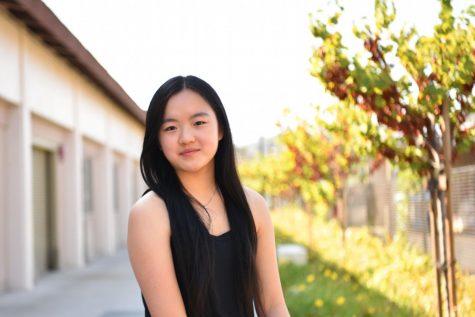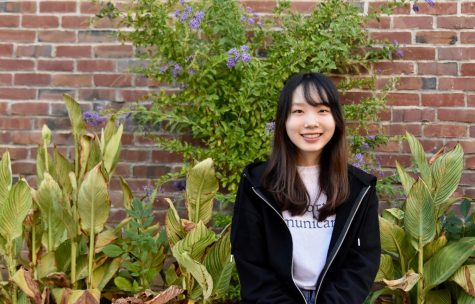Not the right fit
Former MVHS students explain their decision to change schools
November 23, 2019
MVHS is ranked 96th in the nation according to U.S. News & World Report. Although historically many families have moved to Cupertino — dubbed the “bubble” because of its sheltered environment — for a better education, the opposite is also true: some students attend MVHS and decide the environment is not right for them.
According to Superintendent Polly Bove, there are a multitude of reasons why a student might want to transfer to another school. Instances where transferring would be acceptable include if the student is having psychological difficulties and must be closer to their friends and family, or if there is an issue with bullying and the safety of the environment. In normal circumstances, however, changing schools without moving houses is rare.
“If somebody wishes to move, is still residing in the MVHS attendance area, but wants to attend one of our other schools, typically they go to our placement advisory committee and give their reasons,” Bove said. “So those students we talk to in detail because they have to give an explanation of why they’re requesting another school.”
Once the transfer request is processed, the district works with the student’s family to plan the next steps for moving between schools in different districts. Often times, the process does not occur right away.
“If they move out of MVHS’s attendance area into another attendance area, we generally let the student finish the year and ask them to go to the new school where they reside the following [year],” Bove said. “Unless they’re a senior, or a junior at the end of their junior year. Then, we let them finish in the school where they have been attending for three years to finish their diploma.”
Sophomore Diya Bahl, who wanted to move to another high school for the majority of freshman year, has gone through the process of requesting to change schools. Bahl persuaded her parents to request a transfer at the district office, but they were ultimately unsuccessful.
“I really wanted to go to Cupertino HS because all my friends went there from my middle school and I sort of felt lost at MVHS,” Bahl said. “I was very persistent on not wanting to be here and I had that mindset that I just didn’t want to be at [this] school and it would be so much better at any other school.”
Bahl’s unwillingness to be at MVHS stemmed not only from the lack of familiar faces, but also from her dislike of the school environment.
“[MVHS] can be very toxic and stressful sometimes because there’s a lot of pressure put on you for certain things such as getting good grades so you can get into a good college,” Bahl said. “I do sometimes think that it’s very toxic and [a high] pressure environment but also it can sometimes be fun if you’re around the right people that you like.”
However, now that Bahl has attended MVHS for over a year, her thoughts have changed to become more positive.
“Since last year I’ve gained a lot more friendships and relationships with people that I didn’t know,” Bahl said. “Now I feel more secure at [MVHS and] more comfortable with people because I know more people. In general, I’ve gotten used to the ways of the school, like how [the] education is [and] how the teachers are.”
Bahl wishes MVHS was a more welcoming environment so that she could focus more on living in the present. She believes that the mindset at MVHS is too focused on grades, especially when people make a habit of asking about the test scores of peers after getting an exam back.
“An ideal school environment would be a place where you feel comfortable,” Bahl said. “You don’t feel like you’re always pressured into doing something that you don’t want to do. The things you do are things you willingly do and you [aren’t] always worried about your future. You focus more on the present and it’s a place where you can be yourself and have fun at the same time.”
Junior Sumer Hajela decided that Middle College, a program for juniors and seniors that allows them to take classes at De Anza College, would be a better fit for him. He chose to make the switch because he believed the atmosphere at MVHS did not suit him.
“I think it’s too competitive and I think that learning here is more focused on regurgitating information than actually retaining it and using it and applying our knowledge,” Hajela said. “We’re so focused on busy work and academics and getting a good grade, rather than actually retaining knowledge and applying skills we learned.”
Hajela first decided that MVHS was not for him during the first semester of sophomore year. He felt overwhelmed with the constant stress and pressure of upcoming finals. Then, his friend introduced him to Middle College and Hajela realized the program would be his ideal school setting.
“I was trying to seek a new learning environment different from MVHS,” Hajela said. “I didn’t feel like this conventional Cupertino high school environment was the best for me. So going to De Anza, I felt like I’d be given more independence and freedom to express my ideas and learn about new topics.”
Although he was initially apprehensive about transferring, Hajela soon realized that he had made the right decision.
“At first, I was expecting an environment like MVHS because everyone [was] coming from Cupertino schools,” Hajela said. “I thought [the classes] would also be really hard because everyone’s going to be competing, but everyone is very like-minded, in the sense that they were all trying to escape this kind of environment — so everyone’s very welcoming. I was pretty scared to study among adults, but no one cares. No one knows I’m 16, so the anxiety just disappears as you get used to it.”
Now that he has grown used to Middle College, Hajela claims he would not move to any other high school, if given the chance. He believes that his experiences have taught him valuable lessons and allowed him to develop as a person.
“Middle College has spoiled me in the sense that it’s allowed me to see this privilege that few high schoolers have of attending a college campus and being given the independence to make their own decisions,” Hajela said. “That’s the kind of responsibility we’re given to act like adults, even though we’re high school students.”


















